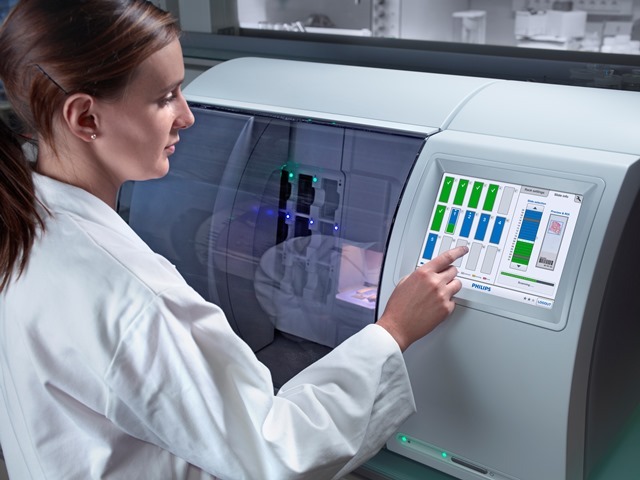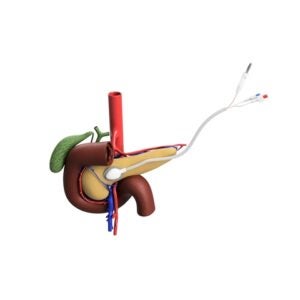
This digital pathology solution will help to achieve more efficient diagnosis, increased diagnostic accuracy, and ultimately support an improved quality of patient management in the pathology department.
“Freeing the pathology department from the conventional way of analyzing the tissue sample with a microscope, digital and computational pathology will enable us to bring a significant improvement to the efficiency and productivity of our workflow while conducting primary diagnosis with digital images,” said Professor Lee Youn-Soo, the Chief of the Pathology department at Seoul St. Mary’s Hospital.
“Our primary objective of the introduction is delivering customized precision medicine service for the patients based on technologies and know-how Philips has long developed in the health care technology.”
Pathology plays a critical role in disease detection, particularly in the diagnosis of cancer. Traditionally, suspicious tissue samples are examined under a microscope to determine if the tissue is malignant and consequently guide treatment decisions. The pathology department at Seoul St. Mary’s Hospital diagnoses over 50,000 histological cases each year, which translates to more than 250,000 slides of human tissue.
Each of these slides needs to be prepared, analyzed, diagnosed, reported, and archived. Digitizing the tissue slide images eases collaboration across sites, reducing costs. It also facilitates access to specialists, allowing multi-disciplinary discussions to share expertise and knowledge, and ultimately come to a better diagnosis for the patient.
In addition to providing a digital pathology solution, Philips will support Seoul St. Mary’s Hospital in several other ways so that the hospital can make the best use of it. This support includes real-time collaboration and consultation between pathologists, efficient multi-disciplinary team (MDT) meeting preparation and execution, networking hospitals under the Catholic University of Korea, and assisting the hospital to form a network with advanced hospitals around the world.
In addition, Philips will support the hospital in building a large-scale database to store the data accumulated within the hospital’s digital and computational pathology organization and develop AI software algorithms, so that the hospital can offer patients customized diagnosis, treatment plans and prescriptions.
“We are honored to be able to work on a digital and computational pathology solution with Seoul St. Mary’s that delivers world-class health care based on advanced medical technology,” said Dong Hee Kim, Market Leader Philips Korea. “Philips is contributing to important changes that are leading the field of pathology in Korea by providing our digital and computational pathology technology and rich experience in health technology.”
Philips IntelliSite Pathology Solution is an automated digital pathology solution for image creation, viewing and management. It comprises an ultra-fast scanner and image management system. It also contains advanced software tools to manage the scanning, storage, presentation, reviewing and sharing of images.
The Philips IntelliSite Pathology solution can be used for in-vitro diagnostic purposes, helping pathologists to review and interpret digital images of surgical pathology slides prepared from formalin-fixed paraffin embedded (FFPE) tissue. It has market access clearance in over fifty countries.
Source: Company Press Release



